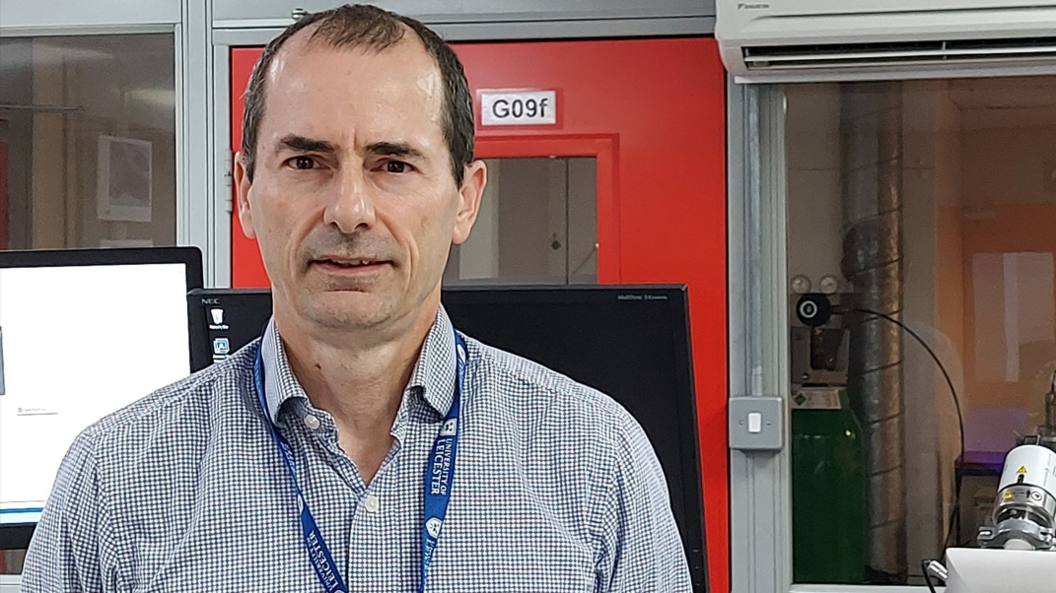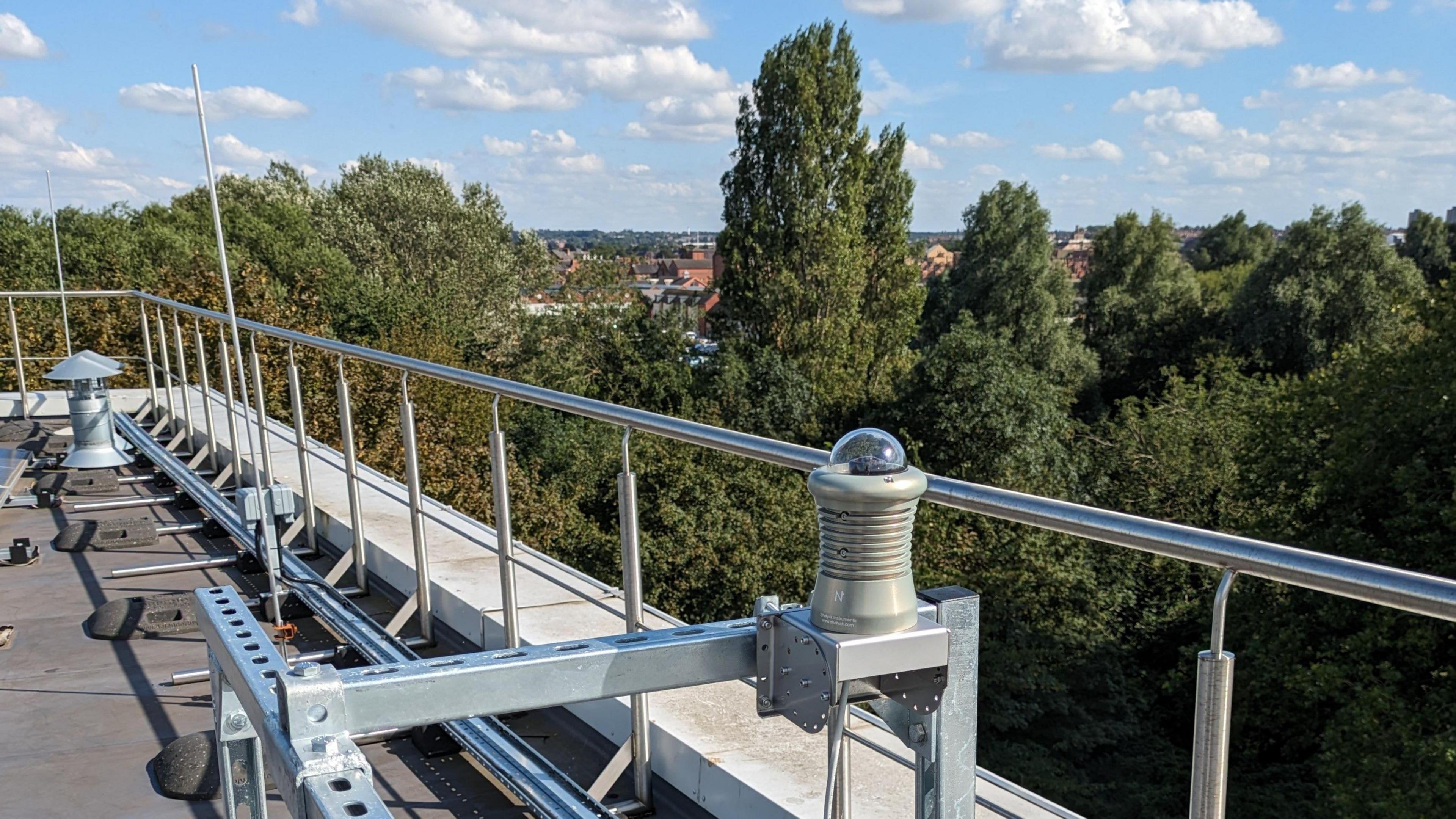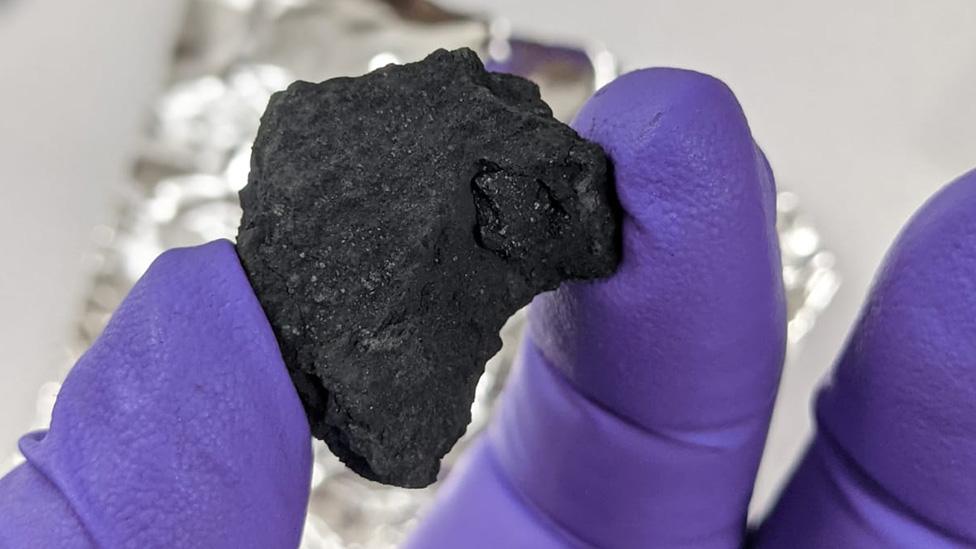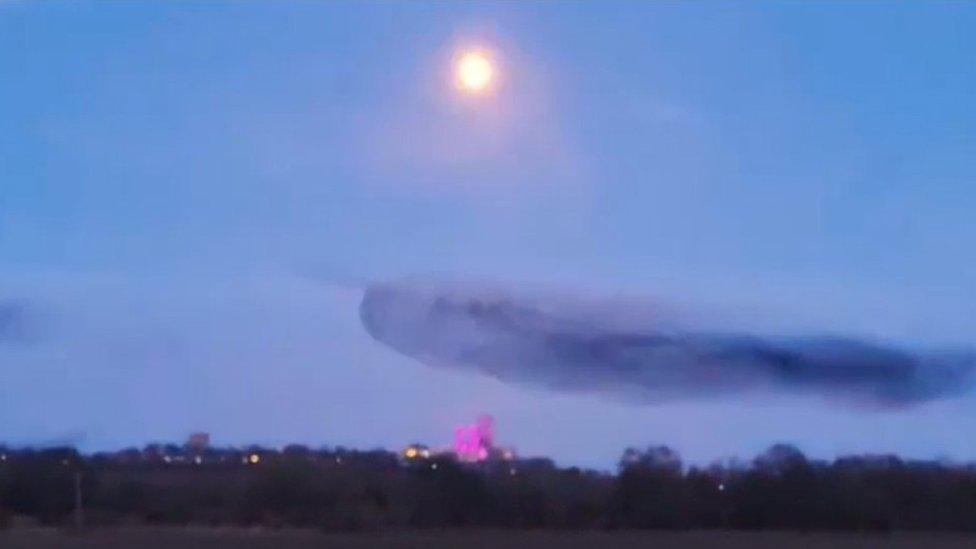Special camera used to track falling fireballs

PhD student Niamh Topping says it is "only a matter of time" until one of the meteorites recorded in Leicester is recovered
- Published
A special camera has been installed in Leicester to monitor the skies for signs of falling fireballs.
The new technology at Space Park Leicester is part of the FRIPON – the Fireball Recovery and InterPlanetary Observation Network.
The network aims to detect fireballs and help scientists recover meteorites that fall to Earth.
In the past few days, the camera identified a meteorite in the skies over the Midlands and recorded images of the Aurora Borealis on Friday.

Prof John Bridges says the study of interplanetary matter is "crucial to our understanding of the formation and evolution of the Solar System"
Prof John Bridges, at the University of Leicester’s School of Physics and Astronomy and Space Park Leicester, said: "[The project's] main objectives include detecting fireballs and computing their trajectories and orbits, calculating where meteorites have fallen, determining the meteorites’ origins and analysing recovered samples.
“The study of the properties of such interplanetary matter is incredibly important because it’s crucial to our understanding of the formation and evolution of the Solar System.”
He explained that the most efficient way to recover freshly fallen meteorites was by using the specialist camera and networks like FRIPON to observe its atmospheric entry.
Prof Bridges added: “Such networks make it possible to accurately calculate meteorites’ trajectories which enables us to not only determine their pre-atmospheric orbit but also their fall location.”

The FRIPON Optical camera has been installed at Space Park Leicester
Scientists are keen to recover fallen meteorites quickly as once they land on Earth they rapidly become contaminated.
PhD student Niamh Topping said: “We were really excited to pick up a meteorite in the Midlands’ skies during the past few days.
“Researchers haven’t been able to locate the fall site for this particular meteorite but I’m sure it’s only a matter of time until one of the meteorites we record in Leicester is recovered.”
Follow BBC Leicester on Facebook, external, on X, external, or on Instagram, external. Send your story ideas to eastmidsnews@bbc.co.uk, external or via WhatsApp, external on 0808 100 2210.
Related topics
Related Internet Links
- Published16 April 2024

- Published20 February 2024
